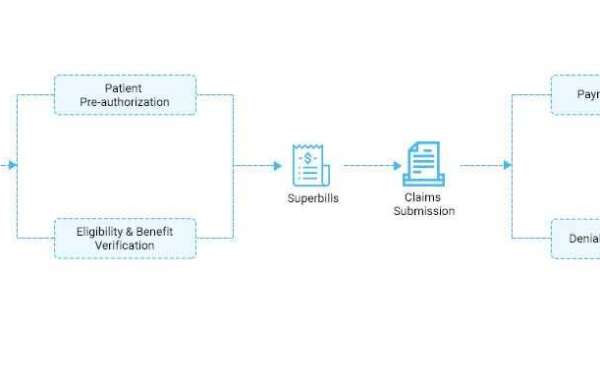
Is Revenue Cycle Management Software A Mandate For Healthcare Providers?
Revenue cycle management is a two-way process offering providers with seamless reimbursements and patients prompt care. It is eminent for any healthcare entity and should be streamlined using the best digital tools of the technical world.
What is revenue cycle management?
The process includes conceptualizing a strategy to manage the healthcare revenue cycle clinical and administrative functions. It conjures several terms such as appointments, invalid deductions, billing systems, remote patient care, patient data, and much more when related to healthcare providers. Starting from a single call for the appointment, the cycle revolves around certain steps and concludes when the payments have been closed for the treatment. The main goal of managing revenue is to identify any loopholes in the entire cycle. When done properly, revenue cycle management can help maximize claims and enhance return on investment.
Benefits of Revenue Cycle Management
RCM healthcare comes with plenty of benefits. Some of these are described in brief here:
1. Minimizing error and increasing accuracy
When RCM is implemented properly, errors are easily identified within the revenue cycle. These further decrease claim denials that were usually common earlier due to technical errors such as missing information or improper data monitoring.
By eliminating the errors and increasing accuracy, the process of spending extra money and efforts to investigate missing data can be nullified.
2. Increase in healthcare facilities
Revenue cycle management leads to an escalation in income for providers. By rectifying claim denials and avoiding fraud, they can receive reimbursements regularly. This, leading to a surplus supply of income, can help hospitals enhance their facilities by setting up new sections, labs, departments, and much more. They can also enhance patient care and digitize their core processes for better convenience.
3. Simplifying administration
By making the revenue cycle error-free, the administrative department can focus on other works, being more productive. The burden of the admin staff members can come to ground zero through this process. They can spend more time enhancing patient care by focusing on front-end tasks and improving patient-physician interaction. Admin department also becomes more capable of processing payments in a better manner with the help of RCM.
4. Adoption to digital healthcare
Using RCM, many hospitals have realized the importance of digitization in their mainstream processes. From bill payments to interconnected mobile apps, digital health is the new language of providers nowadays. Hence, revenue management leads to better adoption of digital healthcare. Also, we know how the integration of digital protocols needs huge costs. As a result, hospitals can easily benefit from RCM's cost-saving. Many providers are taking the game to the next level. By saving on revenue, they personalize patient care through revenue cycle management solutions such as telemedicine, mHealth apps, interoperability, and cloud services.
5. Patient information validation
Healthcare Revenue cycle management Solutions decodes the entire revenue cycle and covers it with a security layer hard to be breached. This way, the information given by the patient can be validated on different levels, and accurate information collection leads to an estimation of insurance eligibility.
On the other hand, it also helps deny false or repetitive insurance claims applications. RCM also helps deny the delays in the reimbursement payment by correcting the cycle in real-time as information is collected. This way, additional work is avoided as providers need not comb the patient's information repeatedly to correct the errors.
Conclusion
Revenue is important for any company to progress and forge ahead, and managing it can be the wiser decision a business owner makes in his journey towards success. With so many lucrative rewards to reap in the long run, one can easily realize the importance of one-item investment in revenue cycle management. It helps the providers and makes them capable of offering world-class services and care to the patients.




